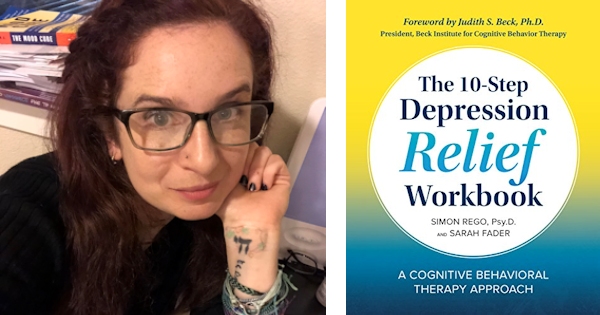Guest Post by Sarah Fader
Being the parent of a child with special needs is inherently difficult. But when it comes to a child who has mental health problems it is another echelon of challenges. I never imagined that my son would have special needs. But I guess nobody knows that they will have a child with special needs when they’re pregnant. There are exceptions to this rule. People find out that their child has downs syndrome or spina bifida or an obvious disability that can be detected in pregnancy. But mental health issues, that’s a different story. There are exceptions to this rule. People find out that their child has down syndrome or spina bifida or a very obvious disability that can be detected in pregnancy. But mental health issues, that’s a different story.
My psychiatrist told me there was a 6% chance that my son would develop depression; that was my first pregnancy and I had no idea what I was in for. I knew that my family had a genetic history of panic disorder, depression, OCD, and anxiety. So there was a good chance that one of my kids would develop one of these issues or something else that was mental health related.
But I was naïvely optimistic and thought it would not happen to my kids. When I first had Ari I was a new mom and figuring things out. The last thing on my mind was whether he would have mental illness. I was concerned with developmental milestones and the chance of him potentially having autism because that is what is stressed when you have a child. Even in the hospital they don’t talk about mental illness they talk about shaken baby syndrome. They talk about caring for your infant and making sure that you satiate that baby’s needs. Doctors warn you about postpartum depression and the baby blues but they don’t tell you about mental illness for your child.
So when my nine-year-old son started showing signs of OCD I was nervous. When my baby boy who wasn’t a baby anymore showed me that he needed help and was oppositional and had irritability and rage, I didn’t know what to do. There is an extended timeline in which things happened and I felt like they were out of my control.
What was out-of-control wasn’t me. The thing that I could not control was what was happening to my son. I was doing the best that I could I am doing the best that I can trying to find the doctors to help my kid. Trying to fight with the flawed mental health care system and find out what it is that he needs and how I can provide that to him. But I am one person and asking my friends for help is getting exhausting for me and for them. I don’t want to be a burden on others. I don’t want to ask for something that people can’t give. All I want is for my son to find peace. I want him to live a life where he feels like he can be himself.
Speaking out about what I’ve been dealing with has been difficult because I faced much judgment from people online when I share my struggles. As the founder of a mental health nonprofit organization it is bizarre to me that people would criticize me talking about mental health issues even as it relates to my family and more specifically my child. Would people be angry if I was discussing my child diabetes? Would people be upset if I was talking about a child that had cancer? Mental illness is just as it indicates, an illness.
I’m writing this for every parent who has a child who is dealing with mental health issues. You are not alone and you don’t have to stay silent. You can do what you need to do to use your voice. You can be private about these issues or you can speak out. You can internalize them or you can tell the truth in whatever way you need to: whether that’s in your journal, call friends and family, or speak about it online. There is no right answer to this struggle. Just know that your experience is valid and your feelings are real. I’m listening. We should all be listening to your story, because one in four people in this country have a mental illness and one of them is my child.

Sarah Fader is the co-author of The CBT-based 10 Step Depression Relief Workbook, which is available on Amazon. She is the CEO and Founder of Stigma Fighters, a non-profit organization that encourages individuals with mental illness to share their personal stories. She has been featured in The New York Times, The Washington Post, The Atlantic, Quartz, Psychology Today, The Huffington Post, HuffPost Live, and Good Day New York.
Sarah is a native New Yorker who enjoys naps, talking to strangers, and caring for her two small humans and two average-sized cats. Like six million other Americans, Sarah lives with panic disorder. Through Stigma Fighters, Sarah hopes to change the world, one mental health stigma at a time.
www.sarahfader.com